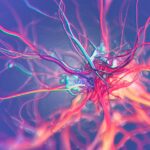 Australia has taken a significant step forward in AI technology with the launch of two advanced supercomputers. These systems are set to boost both medical research and climate science, offering a fresh, practical edge to these fields.
Australia has taken a significant step forward in AI technology with the launch of two advanced supercomputers. These systems are set to boost both medical research and climate science, offering a fresh, practical edge to these fields.
At La Trobe University in Melbourne, you’ll find the nation’s first AI supercomputer—a NVIDIA DGX H200 system. Housed at NEXTDC’s data centre in Tullamarine and supported by a $10 million investment from the Allan Labor Government, this system is primed to speed up medical breakthroughs. As Minister Danny Pearson explains, Victoria is proud to host a resource that will improve healthcare outcomes both at home and across the globe.
This supercomputer is key to the operations at the Australian Centre for Artificial Intelligence in Medical Innovation (ACAMI), processing vast health data and intricate 3D imaging in record time. Think of it as your fast-tracked partner in clinical trials, precision oncology, and other vital medical developments. La Trobe’s Vice-Chancellor, Professor Theo Farrell, sums it up well: AI’s potential in medical and biotech research is immense.
Meanwhile, Monash University is stepping up its game with the MAVERIC project, backed by a AU$60 million (US$39 million) investment. Set for completion in 2026, MAVERIC will begin by focusing on early cancer detection and drug discovery, while also analysing complex climate data. Monash Vice-Chancellor Sharon Pickering is confident that robust investment in AI not only strengthens national research capabilities but also fosters learning about ethical AI. Notably, the platform will run entirely on renewable energy, aligning neatly with sustainability goals.
Taken together, these initiatives underline Australia’s commitment to advancing AI-driven research, paving the way for practical improvements in healthcare and climate strategies. If you’ve ever wrestled with slow research processes or complex data challenges, these innovations could signal a smarter, more efficient future for us all.








